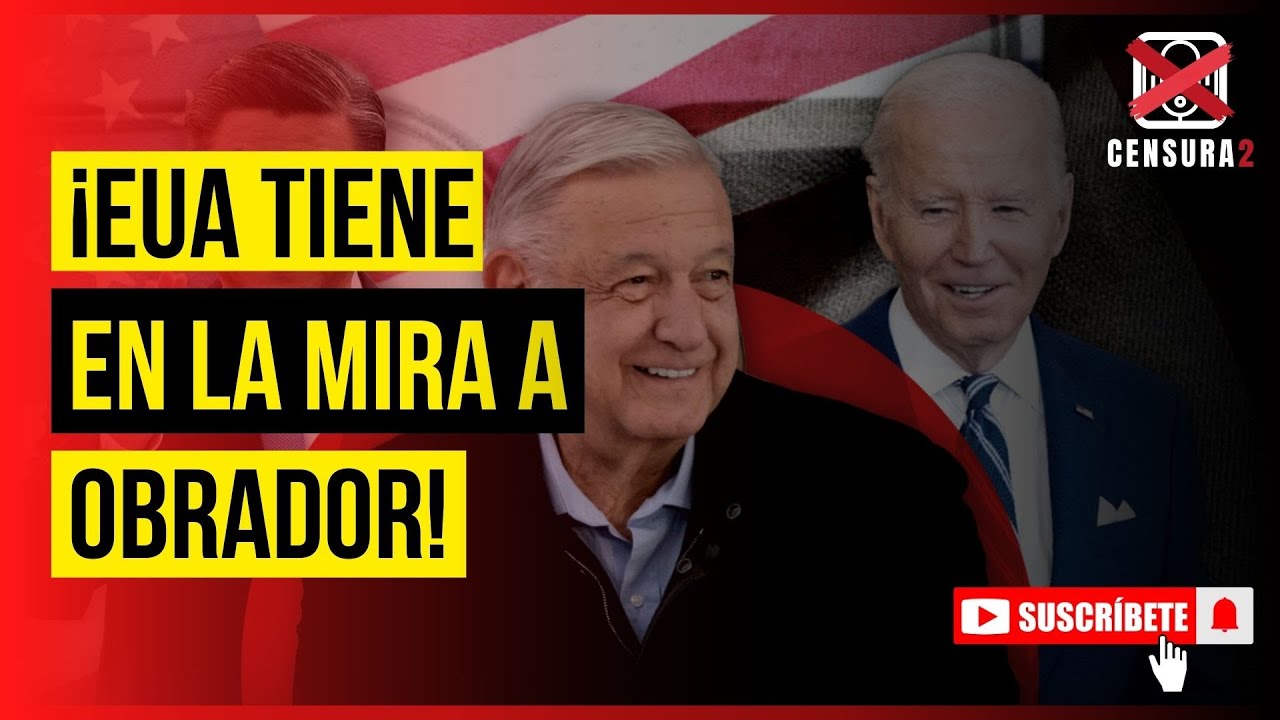AMLO ha fracturado el diálogo entre poderes y con EU: Jesús Silva-Herzog Márquez
Summary
TLDRAs President López Obrador approaches the end of his term, Mexico-U.S. relations have entered a period of diplomatic tension. Following controversial remarks by U.S. Ambassador Ken Salazar, Obrador responded by halting communication with both the U.S. and Canadian embassies. He accused Salazar of overstepping and violating Mexico’s sovereignty. Obrador's diplomatic style—pausing relations rather than using formal channels—has also been evident with Spain. While the U.S. expressed concerns over constitutional reforms, the Mexican president's actions raise questions about the legitimacy of his sovereignty claims, considering his past criticism of U.S. policies. The president's strained relations with both the U.S. and Mexico’s judiciary mark a fractured end to his presidency.
Takeaways
- 😀 President López Obrador announced that Mexico has suspended diplomatic communication with the United States and Canada.
- 😀 The suspension of relations comes after U.S. Ambassador Ken Salazar's statements regarding Mexico's proposed constitutional reforms.
- 😀 Obrador described the Ambassador's comments as an 'unacceptable insolence' and a violation of Mexico's sovereignty.
- 😀 The Mexican President clarified that the Ambassador was not being expelled, but rather that communication was simply being paused.
- 😀 López Obrador's diplomatic approach contrasts with traditional methods, as he prefers suspending dialogue rather than using formal diplomatic channels.
- 😀 Obrador previously used this 'pause' tactic with Spain, where relations were almost non-existent during his presidency.
- 😀 Critics argue that halting communication with key international partners like the U.S. is not an effective diplomatic strategy.
- 😀 The Mexican President believes his actions protect national sovereignty, positioning the U.S. Ambassador's comments as interference.
- 😀 The situation highlights a contradiction in Obrador’s actions, as he has also criticized U.S. policies in the past, such as Texas' immigration laws.
- 😀 As he nears the end of his presidency, Obrador’s administration faces fractured relations both with the U.S. and Mexico's judicial branch, symbolizing a breakdown in domestic and international dialogue.
Q & A
Why did President López Obrador decide to put communication with the U.S. and Canadian embassies on pause?
-President López Obrador put communication with the U.S. and Canadian embassies on pause after U.S. Ambassador Ken Salazar made comments regarding Mexico's proposed constitutional reforms, which the president deemed an unacceptable infringement on Mexico's sovereignty.
What did President López Obrador say about the comments made by U.S. Ambassador Ken Salazar?
-López Obrador described Salazar's comments as an act of 'insolence' and a 'vulnerability of sovereignty' that could put the important bilateral relationship between Mexico and the U.S. on the edge of disaster.
How did President López Obrador explain the suspension of communication with the U.S. embassy?
-López Obrador clarified that Mexico was not expelling the U.S. ambassador but was instead suspending communication with the embassy and reading the ambassador a 'lesson' on Mexico's sovereignty.
What does the concept of 'pausing' communication represent in López Obrador's diplomatic strategy?
-The 'pause' in communication is a diplomatic tactic used by López Obrador to address disagreements by cutting off dialogue rather than engaging in formal diplomatic exchanges, as seen with the U.S. and Spain.
How has López Obrador's diplomatic approach differed from traditional methods?
-López Obrador has frequently opted for halting communication with countries when disagreements arise, instead of using traditional methods such as diplomatic notes or consultations with ambassadors.
Why did the U.S. express concerns about Mexico's proposed constitutional reforms?
-The U.S. expressed concerns about the potential impacts of Mexico's proposed reforms, particularly regarding their possible implications on trade and other international relations, given the close ties between the two countries.
How does López Obrador defend Mexico’s sovereignty in response to foreign criticism?
-López Obrador defends Mexico's sovereignty by framing foreign criticism as interventionism, emphasizing that the country’s sovereignty should not be violated by external forces or diplomatic representatives.
How does the situation with the U.S. compare to previous diplomatic tensions with Spain?
-Like with the U.S., López Obrador had limited diplomatic relations with Spain, choosing not to engage with the country during much of his presidency. This pattern suggests a strategy of reducing communication with nations that disagree with his policies.
What was López Obrador's stance on the U.S. state of Texas' immigration law?
-López Obrador publicly criticized the Texas immigration law, calling it 'draconian' and a violation of human rights, which he framed as an act of intervention to protect the rights of Mexican migrants in the U.S.
How does the diplomatic breakdown between Mexico and the U.S. reflect broader challenges within Mexico’s government?
-The breakdown in communication with the U.S. reflects broader internal challenges in Mexico, including tensions between the executive branch and the judiciary, undermining the cohesion of the government and its diplomatic relations.
Outlines

This section is available to paid users only. Please upgrade to access this part.
Upgrade NowMindmap

This section is available to paid users only. Please upgrade to access this part.
Upgrade NowKeywords

This section is available to paid users only. Please upgrade to access this part.
Upgrade NowHighlights

This section is available to paid users only. Please upgrade to access this part.
Upgrade NowTranscripts

This section is available to paid users only. Please upgrade to access this part.
Upgrade NowBrowse More Related Video

EMBOSCADA A ZEDILLOS EN EL AEROPUERTO ¡AMLO LO ADVIRTIO!

Mañanera 360 | Lunes 29 Enero 2024

México anuncia Nuevo Tren de pasajeros unirá estás ciudades: QRO, CDMX, GDL, SLP, GTO Y AGS

Claudia Sheinbaum sworn in as Mexico’s first female president

🔥 EUA da ULTIMÁTUM al PEJE: ¡Por las BUENAS o por las MALAS! ¡LORET REVELO ESTO GRAVÍSIMO!

The biggest problems Mexico's first female president Claudia Sheinbaum is facing | DW News
5.0 / 5 (0 votes)